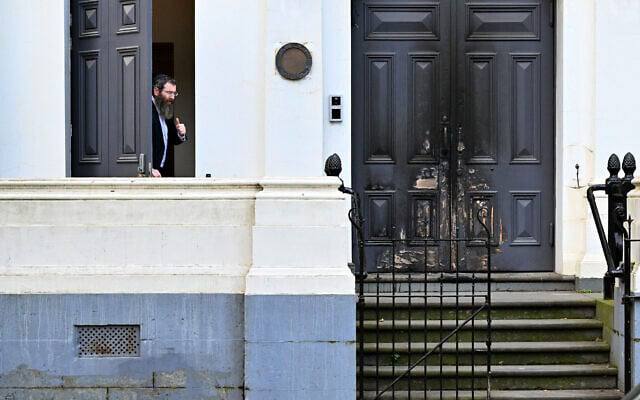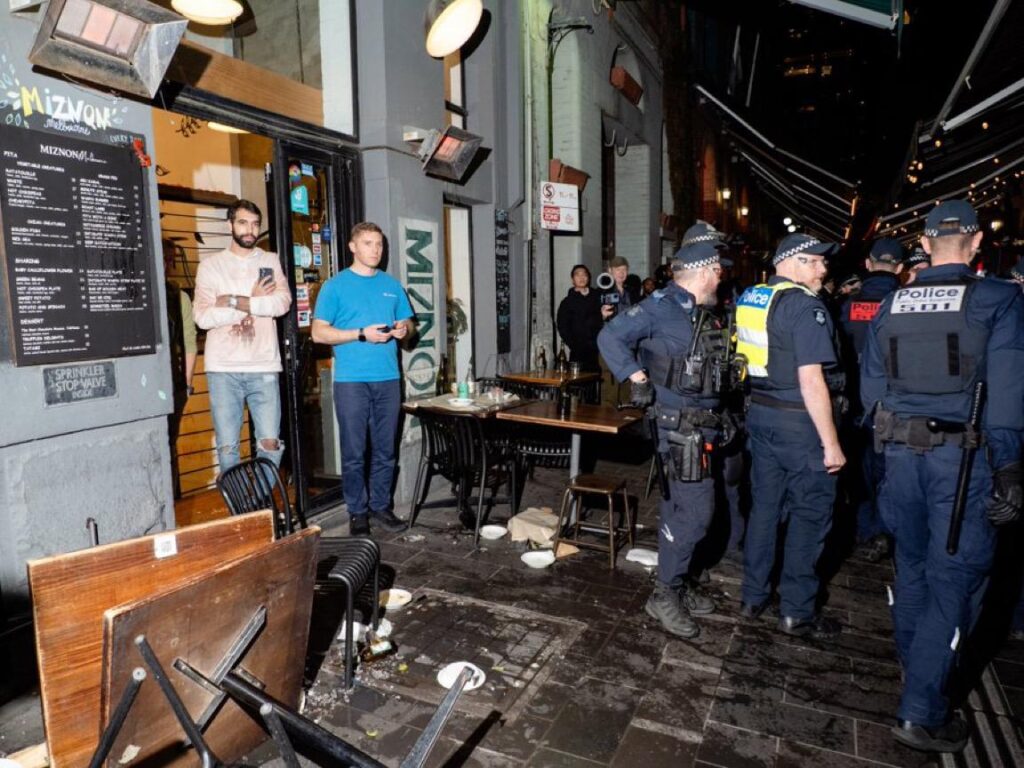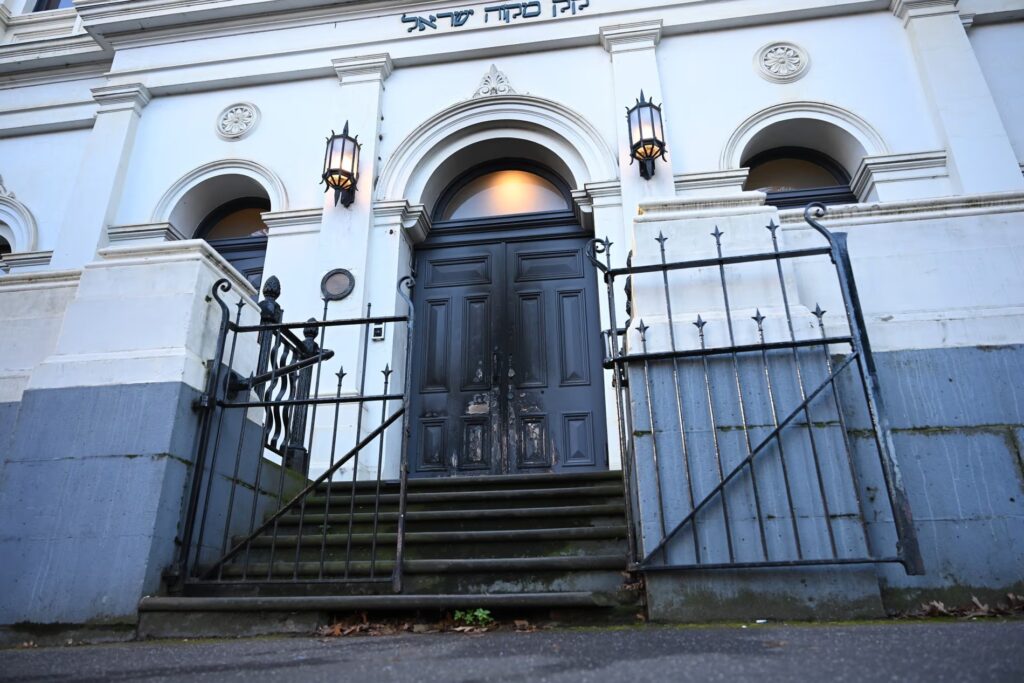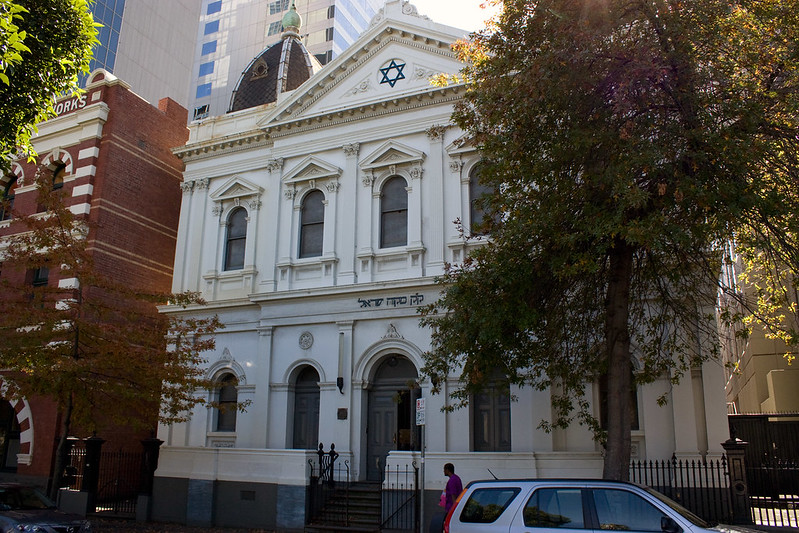UPDATES
Undercover agents and provocateurs – a world of difference
October 14, 2015 | Ahron Shapiro
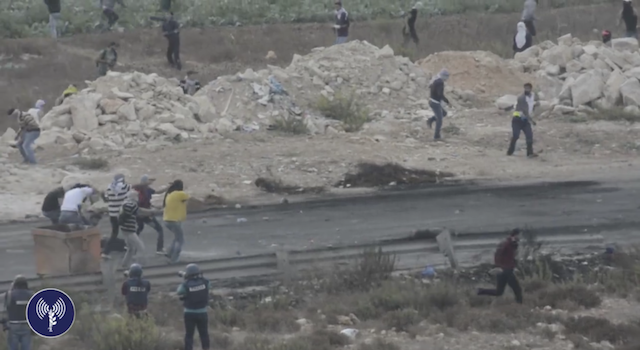
In the Sydney Morning Herald and the Age on October 10, Fairfax used the world “provocateurs” in a caption for an illustrative photo showing Israeli undercover police officers arresting rioting Palestinians.
To accuse Israel of entrapping Palestinians by inciting them to violence – the role of a provocateur – is a serious allegation.
The allegation, as it happens, originated in a tweet by Reuters Jerusalem Bureau Chief Luke Baker, who had misrepresented video footage of the arrest of rioting Palestinians by a group of undercover Israeli police officers – footage taken of a clash that he had not witnessed in person himself.
Footage in Ramallah shows undercover #Israeli police throwing stones at Israeli forces and inciting #Palestinian youth to do the same
You may view the original AFP footage here (The IDF has also published its own footage of the incident in question here.)
As the media watchdog group Honest Reporting noted, the video footage actually disproved Baker’s allegation that Israeli police officers had been responsible for inciting the Palestinians to commit violent acts.
Honest Reporting wrote:
AFP’s Andrea Bernardi, who recorded the footage of the incident, also blogged what he saw. The description includes the following:
The agents had arrived after the clashes had started and had been among the protesters for a while before making themselves known.
Baker’s baseless allegation found its way into stories by The Washington Post and the Times of London… and, as mentioned, the caption of an article in the Sydney Morning Herald and the Age here in Australia.
Words mean things, and a single unjustified word – provocateur – to describe Israeli security personnel, can transform the reader’s perception of Israeli police from the lawful and moral actions of a security service acting in the interests of safety and security for Israeli citizens to the people who are, in fact, responsible for the violence itself.
At the same time, Baker’s mishandling of the video played straight into the Palestinian self-identification as being the world’s quintessential victims, people who have no responsibility for or control over their destiny.
Col. (res.) Dr. Eran Lerman keenly identified this phenomenon in a paper published on October 7 for the Israeli-based Begin-Sadat Center for Strategic Studies (BESA). While Lerman was talking about Palestinian Authority President Mahmoud Abbas’ recent speech before the United Nations General Assembly, his observations are relevant here as well.
At the core of [Palestinian Authority President Mahmoud] Abbas’ plaintive narration is the notion of the Palestinians as innocent victims, whose right to statehood and independence has been taken away and brutally ignored for much too long.
… all that the Palestinians have ever suffered – and their suffering was real enough, even if it pales in comparison with what has befallen the Syrian people and others in the region in recent times – is someone else’s fault. It is Israel’s fault, above all, and the world’s.
…
Over the years, this narrative of victimhood has become so entrenched as to be an integral part of Palestinian identity.
Well-meaning journalists sympathetic to the Palestinians may believe they are helping them by pandering to their desire to be portrayed as powerless victims. But forward thinking Palestinians such as human rights activist Bassam Eid have noted, this is doing them no favours.
As Eid wrote in a blog post for the Times of Israel earlier this year:
Despite our current predicament, I believe that our future will be bright if we do what is needed to achieve peace. We can have a secular democracy that pursues our own best interests. We can live in peace with Israel and the Jews, and we can benefit from Israel’s economic success and democratic values. We have it within our power to transform a long-time enemy into a friend. We have a choice, and we can exercise that choice towards a better future for our people.
Meanwhile, Fairfax’s readers need stories and captions that accurately portray what is happening in Israel, otherwise, they are no longer getting the news but propaganda designed to advance the Palestinians’ “cause” at the expense of the welfare and future prospects of the actual Palestinian people.
Ahron Shapiro
Tags: Israel


